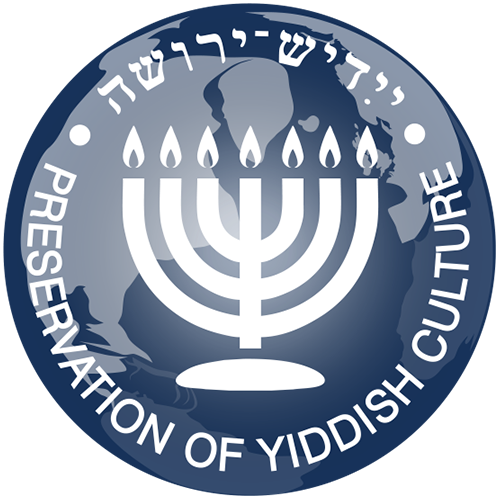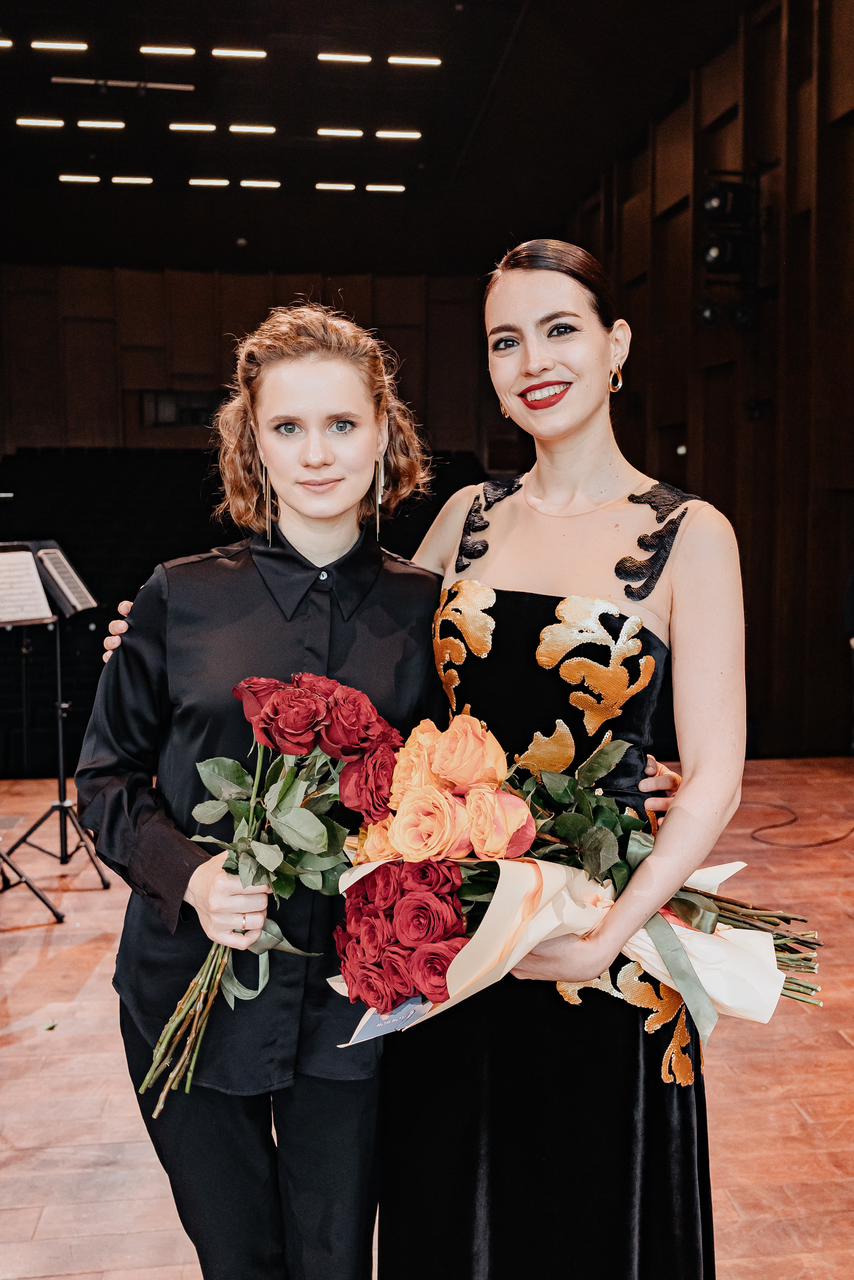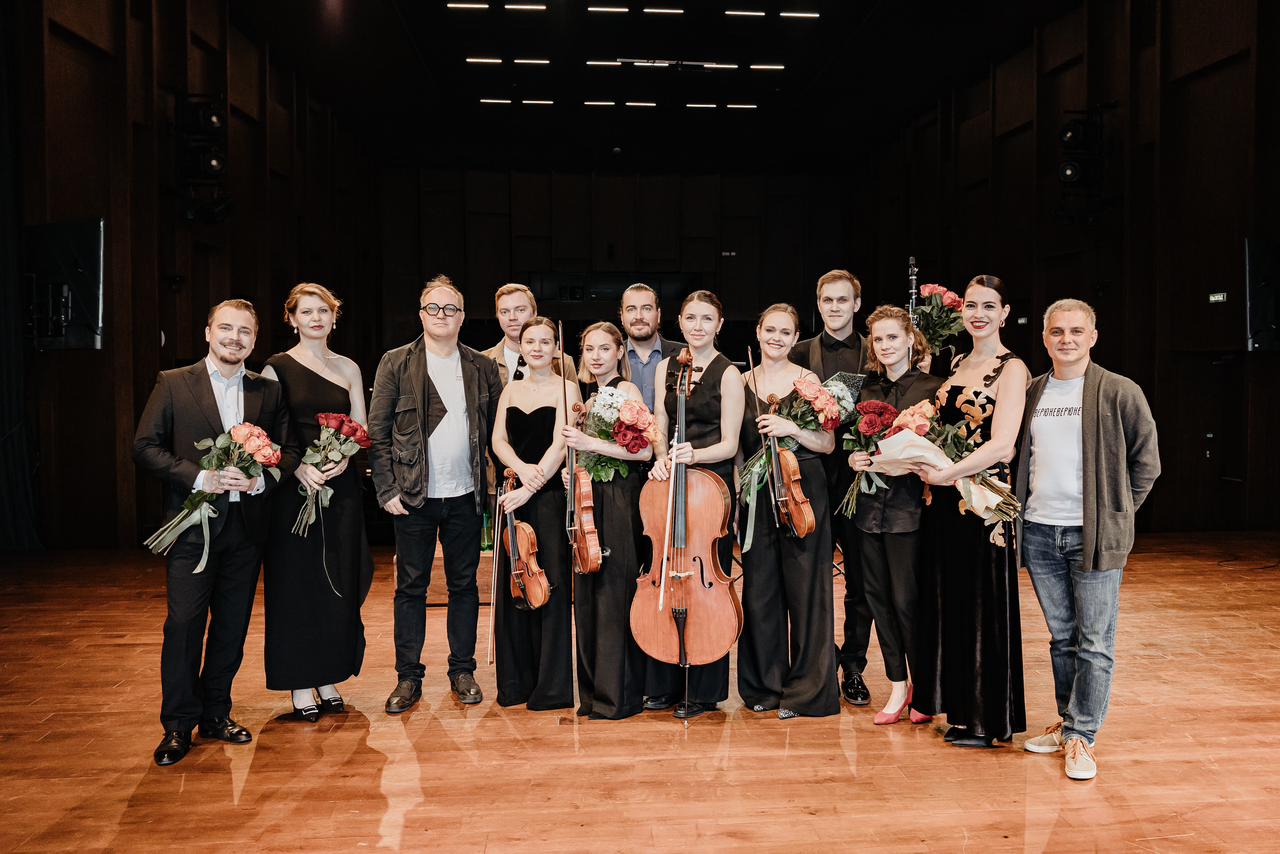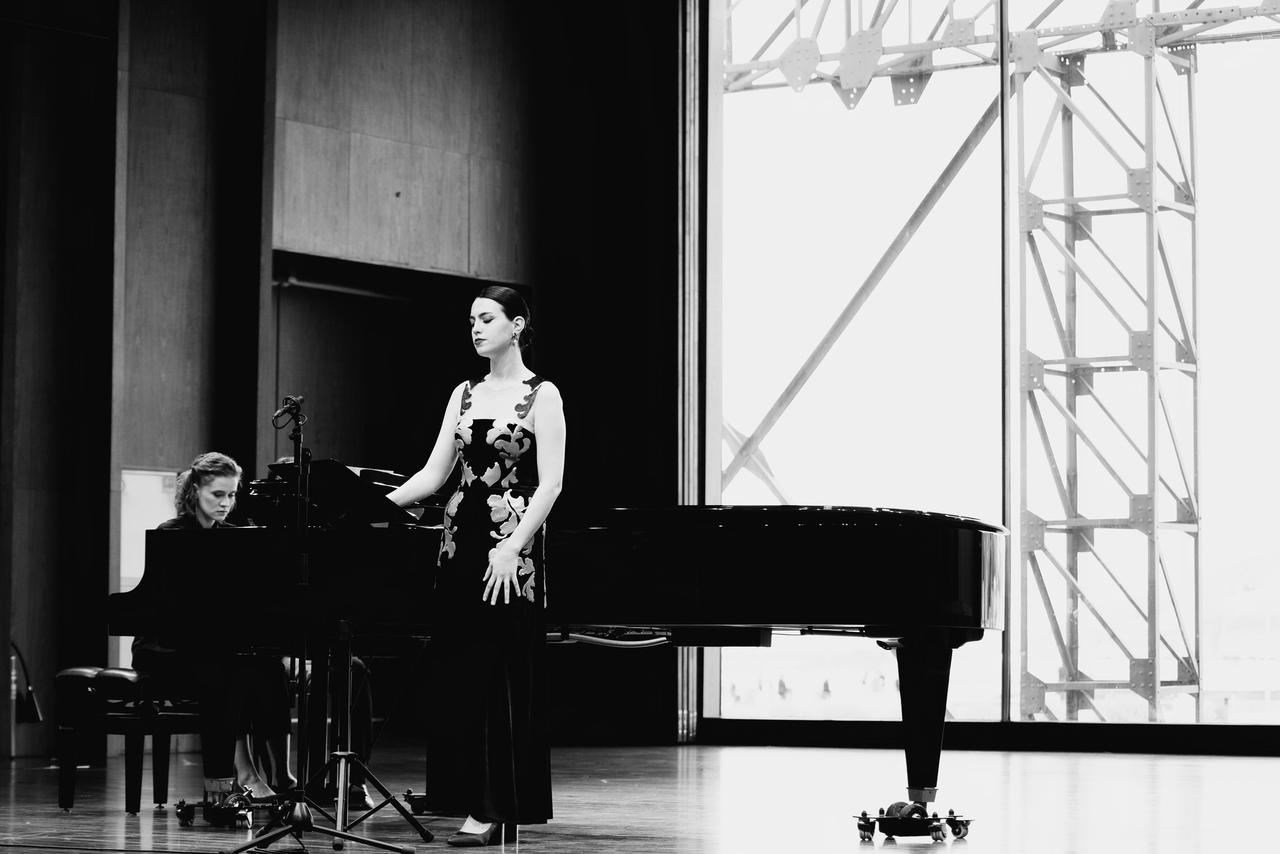Mieczysław Weinberg’s Yiddish Songs in Nizhny Novgorod
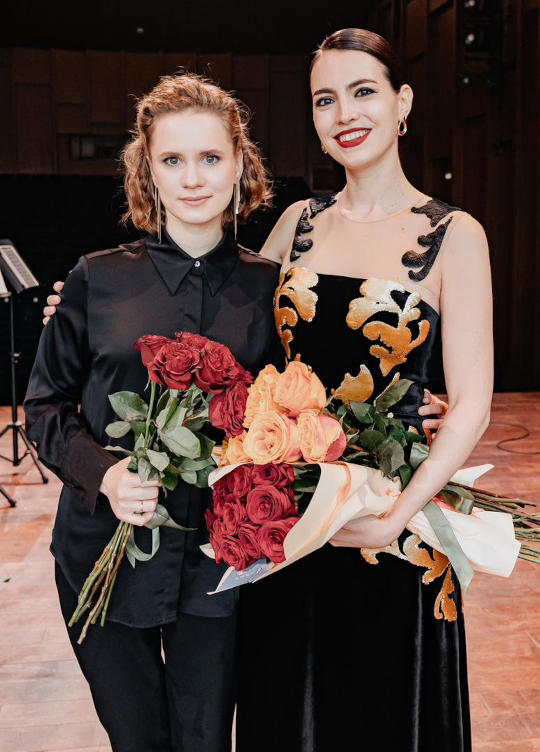
Sofia Zhurkina (left) and Anastasia Djilas
Credit: Anastasia Konovalova
On June 22, 2025, honoring the 80-year WWII Victory anniversary and commemorating the beginning of the Nazi invasion in the USSR, a memorial concert was held at the Nizhny Novgorod Opera and Ballet Theater (Russia). It included works by Boris Tchaikovsky, Dmitri Shostakovich and two cycles of Jewish songs by Mieczyslaw Weinberg, op. 13 and op. 17, performed in Yiddish by tenor Sergei Pisarev and soprano Anastasia Djilas.
Moishe (Mieczyslaw) Weinberg (1919 – 1999) was one of the greatest Soviet composers who authored 26 symphonies, 7 operas and many other musical works. However, only in his two cycles of Jewish Songs, created in 1943 and 1944, he explicitly turns to poetic works written in his native language, Yiddish. Opus 13 is based on the First World War poems by the Yiddish classic poet Yitskhok Leybush Peretz. Opus 17, full of the tragedy and heroism of WWII, is based on the wartime poems of the famous Soviet Yiddish poet Shmuel Halkin (1897 – 1960). Researchers note that both vocal cycles are deeply interconnected.
Anastasia Djilas, a graduate of the Moscow State Conservatory, a soloist of the Nizhny Novgorod Opera and Ballet Theater since 2022, brilliantly performed Weinberg’s cycle of six song based on Halkin’s poems, accompanied by Sofia Zhurkina on the piano. The performance was accompanied by subtitles with a literary Russian translation, which were prepared specially for this concert by the Yiddish and Russian poet Yoel Matveyev based on a draft version by the musicologist Evgeny Khazdan. Sergey Pisarev performed Weinberg’s Opus 13 with the pianist Lyudmila Gorokhova.
Yiddish performances have already become a tradition at the Nizhny Novgorod Opera and Ballet Theater, which in November 2023 held a concert called Menorah Music, where the Yiddish song “Makh tsu di eygelekh” (“Close Your Little Eyes”) was performed by Anastasia Djilas as an encore. Two tragically murdered authors, the poet Isaiah Spiegel and the composer David Beigelman, wrote it in the Lodz ghetto after the children imprisoned there were deported to a death camp.
It’s worth a note that Mieczyslaw Weinberg’s parents also died in a concentration camp: the Yiddish theater composer Shmuel Weinberg and the Yiddish actress Sonya (Surah-Dvoirah) Weinberg. His 1944 Jewish Songs based on Halkin’s poems are both the composer’s personal requiem and a hymn to the then soon-to-be expected victory.
Credit: Anastasia Konovalova
